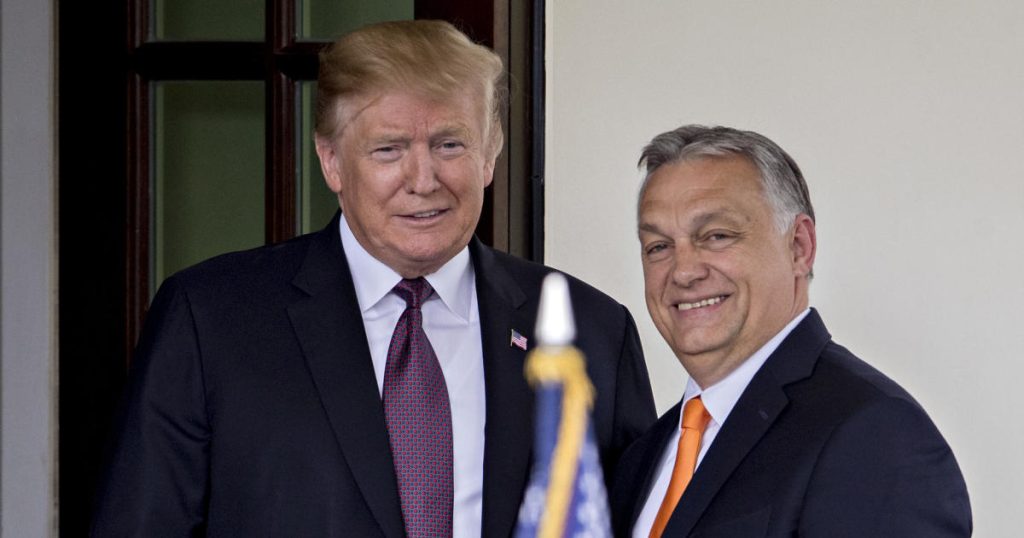During a speech this summer in front of thousands of supporters, Hungary’s far-right prime minister, Viktor Orbán, detailed the close connections he has nurtured with former President Donald Trump. Orbán mentioned that they have entered the policy-writing system of Trump’s team and have deep involvement there. Trump has also spoken highly of Orbán, describing him as one of the world’s most respected men and a strong person. Should Trump win the election, theirs could become a defining foreign policy relationship for a second Trump term.
Beneath the public relationship between Orbán and Trump are frequent and detailed exchanges that delve deeply into political and governing strategy. Sources close to the Hungarian government have described the use of Hungarian government-funded think tanks as conduits to exchange information with conservative U.S. think tanks on various topics, including Ukraine, family policy, and winning elections. Orbán’s administration has urged the Trump campaign to take an isolationist stance on the Ukraine conflict, with communication flowing openly between Hungarian and conservative think tanks before reaching Trump’s campaign staff.
There is a close bond between the pro-Orbán Danube Institute and the Heritage Foundation, a conservative think tank based in Washington, D.C., known for its role in a possible Trump transition plan known as Project 2025. The two think tanks have been meeting regularly to discuss issues like the Ukraine war and immigration. The Danube Institute has also paid visiting scholars from the U.S. to study Hungarian policies in various fields. Cooperation with right-wing intellectuals abroad has been instrumental in promoting the culturally conservative vision of Orbán’s Hungary.
Multiple sources have reported that Viktor Orbán and higher-ranking officials around him frequently exchange text messages with high-level Republican politicians in the U.S. One of these Republicans is Trump’s running mate, Sen. JD Vance of Ohio, who has expressed admiration for Orbán’s decisions. Balazs Orbán, Viktor Orbán’s political director, is said to be a key figure in building relationships between Hungary and Trump’s team. The former president’s son, Donald Trump Jr., also visited Budapest in June to discuss Hungarian-American relations and the war in Ukraine.
Despite the close relationship between Orbán and Trump, concerns have been raised about Hungary’s deepening relationship with Russian President Vladimir Putin. Five Republican U.S. senators recently visited Hungary and expressed concerns about the erosion of democratic institutions and Hungary’s ties with Russia. Orbán is seen as Putin’s closest ally in the EU and has vetoed multiple EU decisions to support Ukraine. The success of Hungarian soft power in the U.S. has been attributed to personal connections, media ties, and diplomatic efforts between think tanks.
The timing of Orbán’s meeting with Trump at Mar-a-Lago, following a visit to Putin, was seen as symbolic and offered a pro-peace message about the conflict in Ukraine. Orbán’s relationship with Trump has only strengthened since the former president left office. Hungarian government proxies, like the Danube Institute, have been actively shaping U.S. public opinion through direct investments and exchanges with U.S. scholars. While Orbán’s ties with Trump continue to expand, concerns about Hungary’s democratic backsliding and deepening relations with Putin and Xi’s China remain a focus for U.S. officials.














